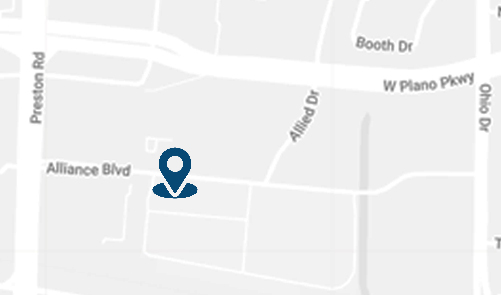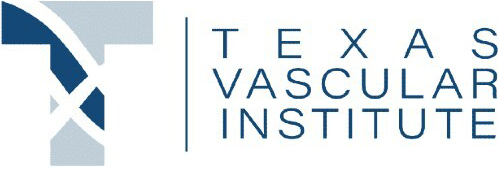By: Dr. Dev Batra | 01.29.23
Chronic venous insufficiency (CVI) is a circulatory system disorder that affects the ability of blood to flow properly when returning from the body to the heart. It affects some 40% of the United States population, occurring mostly in people over 50, and in women more frequently than men.
At Texas Vascular Institute, now with locations in Dallas and Hurst, Texas, Dr. Dev Batra and his team diagnose and treat all manner of vein problems, including chronic venous insufficiency. Since CVI can impact both your circulatory and overall health, they’ve put together this informational guide on its causes so you’ll know when to seek medical help.

The causes of chronic venous insufficiency
To understand the causes of CVI, it helps to know something about how the veins work. Your heart pumps out oxygenated blood that’s carried by the arteries to all of the body’s tissues. Once the blood releases its oxygen, a network of veins carries the nutrient-poor blood back to the heart. Though it’s literally an uphill battle to get from your feet to your heart, your body has built-in mechanisms to help the process.
The first is simple muscle contraction: your calf and thigh muscles contract, squeezing the blood vessels and forcing the blood to move forward. The second is a series of one-way veins that snap shut after the blood has passed through to prevent backflow.
As you age, the valves naturally weaken, allowing blood to trickle backward along its path and pool around the valve. In addition, high blood pressure (hypertension) and even being on your feet all day can put undue stress on the vein walls and on the valves, damaging them in the process. Blood flow becomes sluggish and pools around the damaged valve.
A third cause is deep vein thrombosis (DVT) — the clinical term for a blood clot developing inside one of your deep veins. When this happens, it becomes an obstacle in the way of the blood, causing it to slow down. CVI that develops from DVT is also called post-thrombotic syndrome, and about 30% of DVT patients develop this problem within 10 years following diagnosis.
Symptoms of chronic venous insufficiency
While CVI may produce few symptoms initially, it does present several visible symptoms if not treated soon after development. Two of the initial manifestations are spider veins and varicose veins.
Spider veins are thin veins located close to the skin’s surface. As blood pools in a damaged vein, it can cause these superficial veins to become visible. Because they’re so thin, they form a spiderweb-like appearance, most often on the legs and on the face. They may cause discomfort, but most of the time, they’re painless and more of a cosmetic issue than a health one.
Varicose veins are larger than spider veins, and when the blood pools, it causes a protrusion on the surface of the skin. The protrusion appears red, purple, or blue and takes on a “ropy” appearance. While varicose veins may, like spider veins, be simply a cosmetic concern, they can cause symptoms that include:
- Aching
- Itching
- Swelling
- A “heavy” feeling in the legs
Unlike spider veins, if varicose veins aren’t treated, they may lead to several serious health problems, including:
- Bleeding
- Superficial thrombophlebitis: small blood clots in surface veins make skin
- Edema: swelling of the legs and ankles
- Skin ulcers
Even if you’re not experiencing symptoms, you should always see Dr. Batra for your varicose veins so he can prevent them from causing damage.
Preventing chronic venous insufficiency
There’s no way to completely prevent CVI. However, if you improve your circulation and muscle tone, you can reduce that risk. Some recommendations include:
- Exercise regularly
- Eat a high-fiber, low-salt diet
- Maintain a healthy weight
- Avoid high heels and tight stockings or socks
- Elevate your legs regularly
- Change your position regularly
If you haven’t had a vein check in a while, or if you’re experiencing symptoms of chronic venous insufficiency, it’s time to come into Texas Vascular Institute for an evaluation with Dr. Batra. Give us a call at either of our locations or book online with us today.

Read more blogs
Real Stories, Real Relief
Explore real patient testimonials from Texas Vascular Institute and learn how minimally invasive treatments are changing lives.
Embolization Procedure
Discover embolization procedures for non-surgical relief from knee pain, heel pain, and fibroids. Safe, effective, and fast recovery.
Find Relief Without Surgery
Find relief without surgery at Texas Vascular Institute. Minimally invasive vascular treatments, faster recovery, and compassionate care.
WHAT OUR PATIENTS
have to say
Texas Vascular Institute always appreciates feedback from our valued patients. To date, we’re thrilled to have collected 378 reviews with an average rating of 5 out of 5 stars. Please read what others are saying about Texas Vascular Institute below, and as always, we would love to collect your feedback.
Leave a Review
Amazing Practice
I'm very particular with my Healthcare and tend to be cautious with referrals to specialists. This office is amazing from the first point of contact. Their staff are friendly, professional and highly knowledgeable. Then the Dr is just as amazing as his staff, absolutely brilliant. Office manager Jessica has this office running like a well oiled machine and does so with a smile, an air of confidence, kindness and professionalism. Love this practice!!
- Richard G.

Beyond Thankful
Dr Batra and his staff are amazing! We are so grateful to have found him. Everyone is so kind and so caring and Dr Batra explains everything so well and does procedures with excellence. Beyond thankful to be under their care!!!
- Bitsy P.

Gold Standard
This is a gold standard for how a medical practice should be run. I was promptly seen at my scheduled time, my ultrasound was thorough and I received plenty of attention and care from the staff and Dr.Batra.
- Weronika L.
INSURANCE
We accept most major insurance plans. Please contact the medical office for all insurance related questions.









8330 Meadow Rd #100
Dallas, TX 75231
For Appointments: 972-798-4710
General Inquiries: 972-646-8346

809 West Harwood Rd, Suite 101,
Hurst, TX 76054
For Appointments: 972-798-4710
General Inquiries: 972-646-8346

4716 Alliance Blvd Suite #180,
Plano, TX 75093
For Appointments: 972-798-4710
General Inquiries: 972-646-8346

